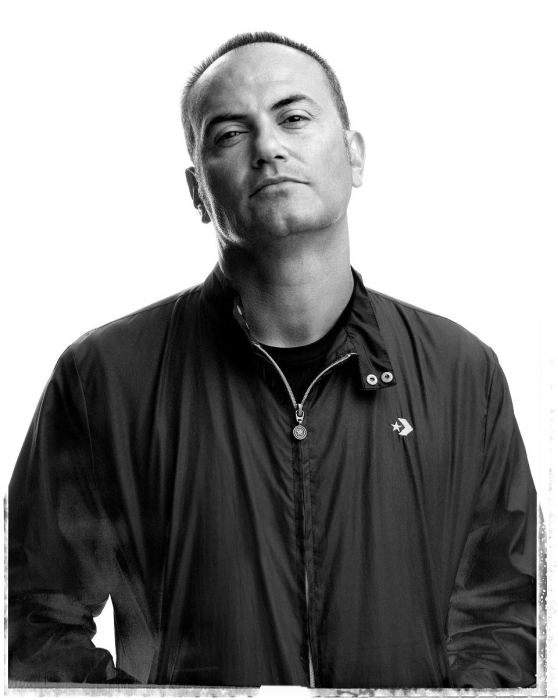Italo Disco legend Fred Ventura was in Mexico City recently when he experienced a rather special moment that reinforced in him the idea that his classic 30-year-old hit, “The Years (Go By),” still resonates today.
It was January and he was at the Patrick Miller Festival, a gathering of 80s and 90s Italo acts, including Fancy, Riccardo Campa, and Ventura.
“It’s so nice to see the crowd go wild and sing the chorus during my live gigs, and when I recently performed for 10,000 people at [Patrick Miller], it was the most emotional [show],” Ventura said.
An astute professional musician, Ventura was ready for this. On March 13, he gave his fans an excellent gift to celebrate the 30th anniversary of the release of the song — The Years (Go By): 30th Anniversary Reworks, a compilation of compelling remixes by some contemporary producers, such as Alden Tyrell and Ali Renault, and his own Italoconnection collaboration with Paolo Gozzetti.

But the collection also has the original 1984 demo of the song, which I first heard in 2011 on a 12-inch release on Italians Do It Better. I love both this version and the final, which was released on a 12-inch in late 1984/early 1985. However, I often go back to the demo. The raw minimalism of it is striking. It’s a bit like A Broken Frame-era Depeche Mode bathed in lo spirito italiano.
Before I get into how Ventura, along with producers Miki Chieregato and Roberto Turatti, put in the work to make the song (he told me, “it was not so easy”), let’s take a look at how the world came to know the demo through Johnny Jewel.
“I was exchanging messages with Johnny Jewel through MySpace at the time,” Ventura said. “We both respected and loved each other’s work, so I decided to send him around 50 original demos from the 80s.”
Jewel, the producer behind Glass Candy, Chromatics, Desire, and other projects, was pleased.
“He loved them and decided to start our collaboration, releasing a first 12-inch [of ‘Years’],” Ventura said.
Jewel also put on the record an instrumental version of the 1984 demo on the A-side, and selected for the B-side “You Want Me” and “Don’t Give Up,” two songs that came out in the couple years following the original release of “Years.” (I should note that last year Ventura put out an updated “Don’t Give Up” that has a full and intense new synthesizer part. Check it out.)
There were talks about Italians releasing a full album from the demo tapes, but that hasn’t yet come to fruition.
Aside from the later-period Italians connection, one of the most interesting aspects of “Years” is that the final product was the result of some heavy-duty troubleshooting by Ventura, Turratti, and Chieregato.
“We wanted to do something different after the wrong step that was my debut single ‘Zeit,’ so we worked on it in several studios using a lot of new equipment,” Ventura said.
Among that equipment was a brand-new Yamaha DX7 digital synthesizer — the first commercially successful one ever made — which they used for the bass line. They were embarking on a new frontier of sorts, without the assistance of digital audio workstation software, such as ProTools or FL Studio.
“It’s a real joy to see how popular this record is considering how troubled was the realization of the final mix,” Ventura said.
Not only do people enjoy “Years” and Ventura’s other great work, but they are also still in love with Italo Disco, even if they don’t realize it. When I asked Ventura why he thought Italo Disco (and its elements) was popular nowadays, he was a bit taken aback.
“It’s a constant surprise to discover that all over the world there is an audience for Italo Disco,” he said.
He’ll visit Helsinki, Stockholm, Warsaw, Moscow, Los Angeles, Mexico City, Dublin, Berlin, and The Hague, but “it’s all the same in every city: Young and old supporters joining on the dance floor to dance to obscure Italo b-sides or the big hits without any prejudice…”
I asked him about his thoughts on some of the artists nowadays who took his cue and have infused their music with the elements he and his contemporaries popularized 30 years ago.
“I really like everything [Italians] produces, because of the sound and the imagery of the label,” he said.
Some of his favorite contemporary producers are Tyrell, Renault, Paramour, Codazzi, Andy Romano, and Flemming Dalum, he said.
Since the days of “Years,” Ventura has been busy, including actively collaborating “mostly with people I respect.” (One fascinating pairing I should note is his work with Sally Shapiro. Check it out.)
The disco itch came back in 1997, thanks to I-f and his Viewlexx label, Ventura said.
“His mixes and productions were really influential, and the Rotterdam scene around Clone was also very important to me,” he said.
The Italoconnection project with Gozzetti is a natural result of all those European collaborations, according to Ventura.
“The idea of an Italo team with my friend and past collaborator [Gozzetti] was a fundamental step. Italoconnection’s main goal is to refresh the Italo sound of the 80s and make it contemporary, in recordings and also live,” Ventura said.
Paolo and Ventura have a lot of new projects to work on in the near future, he said, so “2015 is gonna be a busy year…”
(Editor’s Note: The Beat’s Alive is my occasional column focusing on everything associated with the Italo Disco genre, from the artists and their music, to the culture and history that created them, and anything else that comes up. Because I’m predictable, I got the column’s name from a Glass Candy song. Viva Italians!)
(Feature Photo Credit: Fred Ventura.)


